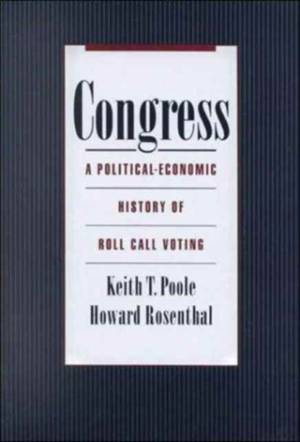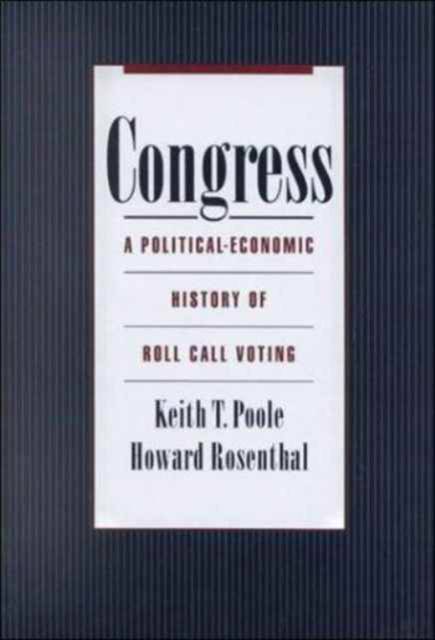
- Afhalen na 1 uur in een winkel met voorraad
- Gratis thuislevering in België vanaf € 30
- Ruim aanbod met 7 miljoen producten
- Afhalen na 1 uur in een winkel met voorraad
- Gratis thuislevering in België vanaf € 30
- Ruim aanbod met 7 miljoen producten
Zoeken
Congress
A Political-economic History of Roll Call Voting
Keith T. Poole, Howard Rosenthal
Paperback
€ 20,95
+ 41 punten
Omschrijving
In this wide-ranging study, the authors use 200 years of congressional roll call voting as a framework for an interpretation of important episodes in American political and economic history. They also trace the voting patterns of Congress throughout the country's history.
Specificaties
Betrokkenen
- Auteur(s):
- Uitgeverij:
Inhoud
- Aantal bladzijden:
- 312
Eigenschappen
- Productcode (EAN):
- 9780195142426
- Verschijningsdatum:
- 1/10/2000
- Uitvoering:
- Paperback
- Afmetingen:
- 156 mm x 234 mm
- Gewicht:
- 456 g

Alleen bij Standaard Boekhandel
+ 41 punten op je klantenkaart van Standaard Boekhandel
Beoordelingen
We publiceren alleen reviews die voldoen aan de voorwaarden voor reviews. Bekijk onze voorwaarden voor reviews.











